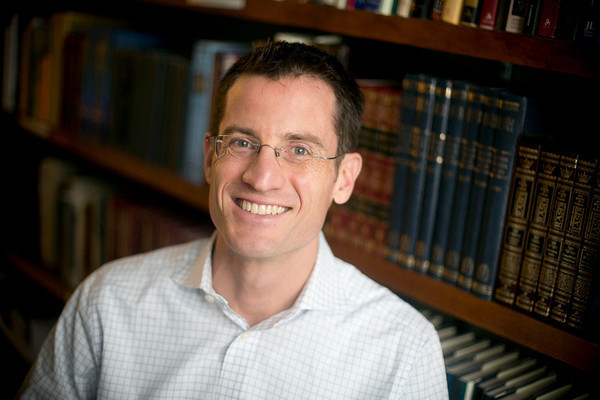By Janis Siegel, JTNews Correspondent
It might sound like one of those familiar jokes — a rabbi, a priest and an imam meet in heaven or are in a sinking boat, and so on, but when three religion ethics groups — one Christian, one Jewish, and one Muslim — got together in a downtown Seattle hotel for their annual conference, it was seriously academic.
In early January, hundreds of religion ethics and bioethics professors and professional clergy from The Society of Christian Ethics, The Society for the Study of Muslim Ethics, and The Society of Jewish Ethics shared their latest research on issues that face our multi-faith society today.
“We’re a “˜heimish’ group,” SJE’s 2012 president Jonathan Crane told JTNews. “There are fathers, pastors, professional chaplains, MDs, and lawyers who are members of the society and who are immersed in bioethics, religion, and in ethical deliberation all the time — in our lives, work and communities.”
Crane, 41, grew up in North Seattle and attended Temple Beth Am with his family, who still lives here. Today, he is the Scholar in Bioethics and Jewish Thought in the Center for Ethics at the Emory Center for Ethics in Atlanta and an assistant professor in the School of Medicine and the Department of Religion at Emory University.
Crane authored “Narratives and Jewish Bioethics” (Palgrave Macmillan, 2013) and was a co-editor of “The Oxford Handbook of Jewish Ethics and Morality” (Oxford University Press, 2012).
Along with several sessions about Jewish bioethics and new ways of interpreting old texts like the Mishnah and Jewish law, Crane is also proud of the unique and diverse topics tackled by the three groups.
“There are issues that certain communities or individuals might dismiss as non-issues altogether,” Crane said, “but that we are committed to wrestling with because we are academics and there is an openness to engage in a wide range of issues.”
Whether the topic was the “Distribution of Healthcare,” or the ethical treatment of transgender and intersex patients in waiting rooms, or the question of whether the state should regulate the Jewish ritual of metzitzah b’peh, where a circumciser orally suctions away the blood from the wound of a circumcised baby boy, the SJE offered it.
Other research papers reexamined the Jewish ethic of nonviolence, a look at whether the female voice in Jewish ethical literature represents “sin or pleasure,” and the “risks and benefits of Jewish sexual ethics.”
SJE scholars also investigated the political and the scientific.
“Three papers,” said Crane,” the social history of Judaism and racism, the law in the U.S. where Jews invoked race-protection laws when there was damage done to a synagogue, and the last paper looking at claims of Jewishness through DNA, were a fascinating investigation of the complicated relationship between Jews, Judaism, notions of race, law, and social construction.”
The nearly 600 members from the SCE, easily the majority at the conference, also stepped outside the lines of traditional Christian topics.
Dwight Friesen from The Seattle School of Psychology and Theology presented “The Pope Tweets: The Ethical Interplay of Our Liturgical and Digital Lives.”
“As technology sinks more and more deeply into our lives,” wrote Friesen, “Christians are finding that even the spiritual can be wired. Our speakers will examine the ways liturgical and technological practices work—sometimes together, sometimes in opposition—to shape Christians.”
Although no SCE or SSME representative responded to requests for comment from JTNews, Dr. Allen Verhey, SCE president and professor of Christian ethics at the Duke Divinity School praised the range of papers and topics his group chose to explore in his welcome message.
“I expect the papers…will prompt important conversations about different particular traditions and their contemporary relevance,” wrote Verhey.
Islamic scholars also explored the classical subjects such as theology, law, medical ethics and social ethics by offering sessions such as “Tradition and Religious Imagination in Muslim Theology” and “Forging an Egalitarian Theology: Advocating for Minimum Age of Marriage in Light of Muhammad’s Marriage to Aisha.”
